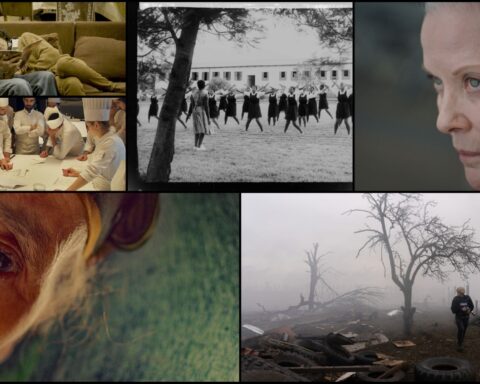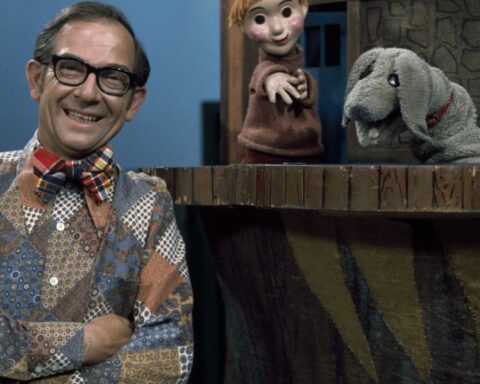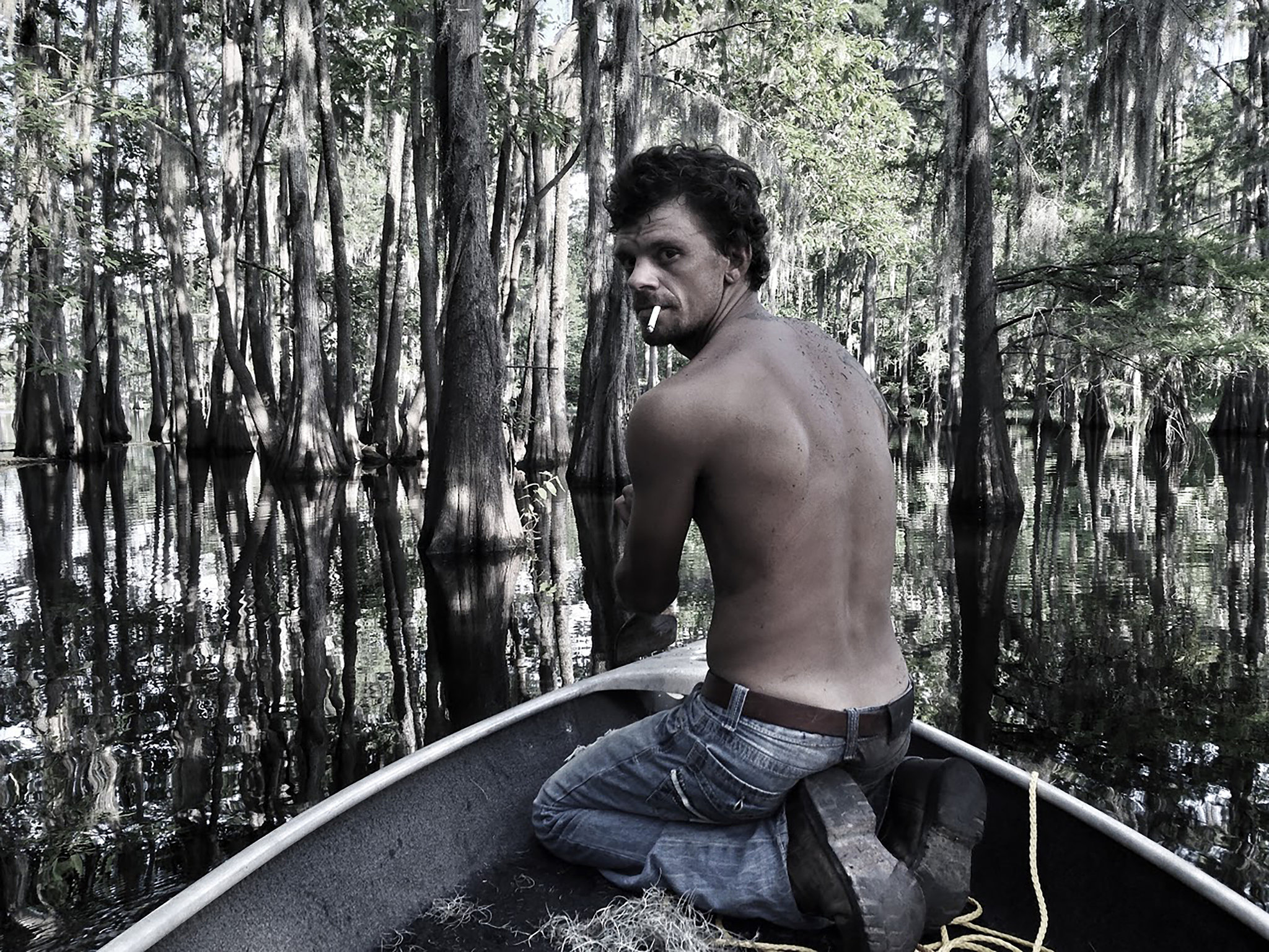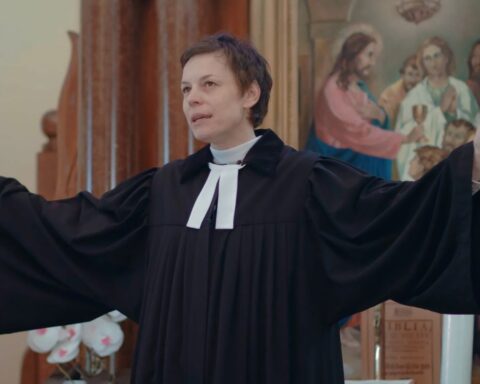Call 2018 the year of the documentary. One story for docs this year was their incredible box office success with four non-fiction films cracking the $10 million mark. Those films, Won’t You Be My Neighbor? ($22 mil), RBG ($14 mil), Three Identical Strangers ($12 mil), and Free Solo ($11 mil and counting), helped prove that an audience for docs is alive and well in the theatrical market even if (or perhaps because) docs are so widely available on home video streaming. The booming attendance at Hot Docs also spoke to the healthy appetite for documentary as audiences demonstrated that they want to engage with films and filmmakers about the stories they tell. The success of these films also speaks to the stature and quality of festivals promoting the art form since seven of the ten documentaries listed here premiered at Hot Docs. (Two of them are TIFF docs and the other simply opened theatrically in Canada after debuting in Cannes.)
At the same time, documentaries captured a sense of urgency that many dramas failed to provide in 2018. Filmmakers took stock of the changing political climate, particularly in the USA with documentarians using the art form to make sense of their nation in the age of Trump. Figures like Fred Rogers harkened back to an age when being a Republican or a conservative wasn’t inherently synonymous with evil or an aversion to change. Ruth Bader Ginsburg became the coolest superhero since Black Panther as a voice of reason that encouraged progressive Americans to keep up the fight.
2018 also saw many docs that simply excelled by advancing the art form. Films like Anthropocene, Maria by Callas, Whitney, and McQueen were impeccably well-made films that demanded the full theatrical experience with big screens and surround sound immersing audiences with the power of images. In addition to providing compelling and relevant stories that questioned our place in the world, the best docs of the year inspired audiences through art.
Without further ado, here are ten POV picks for the best documentaries of 2018.
Pat Mullen’s top ten documentaries of 2018:
1. Won’t You Be My Neighbor? – Too often do critics and audiences dismiss docs about art and culture as slight or simple. Morgan Neville’s invigorating Won’t You Be My Neighbor? is the most effective and quietly political film of the year. Its portrait of square children’s television icon Fred Rogers reminds audiences of a time when kindness was the status quo. Cut to 2018 and toxic vitriol is the preferred manner of delivery for everyone from film critics to the President of the United States. Neville uses this timely and deceptively simple analysis of Rogers’ career to ask viewers what kind of world they want to live in as the archival images of Mister Rogers Neighborhood give way to the horrifying shots of 9/11, Trump supporters, and ultra-conservative loonies who don’t share Rogers’ Christian message for empathy. Too few documentaries present a problem to which audiences can easily take the first step towards finding the solution: Neville’s doc asks us to take a lesson from Mr. Rogers and simply treat our neighbours with the same respect we expect and deserve from them in return.
2. Minding the Gap – Bing Liu’s extraordinarily personal documentary sees the director find his voice as he examines his friends’ coming of age stories. Liu offers an intimate portrait of his tightly knit social circle of skateboarder friends as they rule a derelict town in the Rust Belt of America, and he dexterously transforms a behind-the-scenes skate video into an absorbing study of the dynamics of race, poverty, gender, class, and violence that shape society. Liu goes there, showing his friends at their highest and lowest, and the proximity of the camera between the subjects, and ultimately himself, proves transformative. Minding the Gap is personal filmmaking at its finest.
3. Bathtubs Over Broadway – This Hot Docs hit rivalled Spider-Man: Into the Spider-Verse for offering the most laughter-filled press screening of 2018. The doc playfully dives into the eccentric field of “industrial musicals”—song and dance shows put on for corporate clients by aspiring/B-list actors—as former Late Show with David Letterman scribe Steve Young, an obsessive collector of industrial show arcana, probes the long lost history of the art form. Young’s quest centres on the myth of The Bathrooms are Coming, which is like the Holy Grail of long lost industrials, as he seeks out rare recordings and interviews with the show’s original stars. The doc is an uproarious ode to the lost art of capitalist show tunes and a spirited analysis of the changing cultural and political landscape of the USA.
4. The King – Like Bathtubs, The King makes sense of the USA at a time of change. This unique assessment of Trump’s America reflects upon the USA as director Eugene Jarkecki invites a variety of his fellow Americans to take a ride in Elvis Presley’s old car and discuss the nation’s past and future. The film finds refreshing candour in these conversations as Americans make sense of the changes in values, and the country’s fixation on war in between folksy musical interludes that evoke a great spirit of Americana. Appropriately enough, the country is embodied by a fat man who died on the crapper – which makes it a perfect companion piece with Bathtubs Over Broadway for encapsulating the USA today.
5. Maria by Callas – Tom Volf’s debut feature is a passion project five years in the making. His devotion to bringing the life of Maria Callas to the screen echoes in every frame of this meticulously researched and beautifully assembled biography. The doc draws upon Callas’s own words through writing and interviews, providing an insightful glimpse behind the tabloids and prima donna persona for which the famed opera star was known. The extended snippets of Callas performing her operas are extraordinary, but the real gold of the film is a rare interview with David Frost in which Callas gives the performance of a lifetime, playing herself on an entirely different stage.
6. Anthropocene: The Human Epoch – Have Jennifer Baichwal, Nick de Pencier, and Edward Burtynsky delivered the best cinematic trilogy since The Godfather? Their trifecta of environmental films comes full circle with Anthropocene concluding the essay on human activity that began with Manufactured Landscapes and Watermark. From the mines of Carrara, Italy to the lithium evaporation ponds in Chile’s Atacama desert and the hallowed grounds of endangered species in the London Zoo, Anthropocene tours the globe to provide eye-opening glimpses at the art we helped create. Anthropocene’s canvas of horrifying images gives audiences firsthand evidence of their complicity in the world’s decline. It’s also a visually compelling reminder—almost overwhelmingly so—that it’s our responsibility and our responsibility alone to enact rapid change.
7. McQueen – Ian Bonhôte and Peter Ettedgui’s archival portrait of late designer Lee Alexander is perhaps the most fascinating portrait of a star being born this year. The film bears the meticulous stitchings of McQueen haute couture as the filmmakers provide a dexterous collage of home movies, archival interviews, and fashion show highlights to illustrate the designer’s brilliant clothes and dark mind. The film haunts as it sees McQueen disrupt the establishment of the European fashion world with his audaciously controversial designs that are violent and sexy. The core of the film is the betrayal of his mentor, Isabella Blow, and the cruelly all-consuming power of celebrity as McQueen’s friends recall the final chapters of his career in emotionally charged interviews. McQueen is a triumph of warts-and-all biographical filmmaking.
8. 1999 – This haunting and lyrical study of memory and trauma poetically conveys the elusiveness of language we face while confronting grief. Director Samara Chadwick—who, full disclosure, is a POV board member—returns to her high school in Moncton, New Brunswick, which was rocked by a wave of suicides in 1999. Chadwick and her former classmates and teachers reflect on their inability to articulate the pain they experienced at the time and the film’s wonderful interplay of English, French, and Chiac languages further conveys this struggle. Chadwick finds in visual language what her peers cannot put into words as prisms and video games refract memories and bring the spirits of the dead into the film. This extraordinary doc is a valuable tool for any teen or adult to know that someone else feels the pain they can’t put into words.
9. Gurrumul – Oh my goodness, the music of Gurrumul will transport you to places you never imagined. An essential portrait of world music comes in director Paul Williams’ look at late Yolngu singer Geoffrey Gurrumul Yunupingu, who was a breakthrough for Indigenous performers in Australia shortly before his death. His voice is simply extraordinary and the richly layered soundtrack ensures it hits the ears and hearts of audiences with full impact. Gurrumul is a man of few words and as the blind singer reluctantly revisits his past and childhood, the film situates his music and voice within Australia’s dark legacy of colonialism and reconciliation.
10. Call Her Ganda – An important and extremely resonant addition to the world of true crime documentary this year is PJ Raval’s deeply moving Call Her Ganda. The film examines the troubling case in which Filipina transwoman Jennifer Laude was murdered at the hands of US Marine Joseph Scott Pemberton while he was stationed in the Philippines. Raval unpacks the complicated political context of Jennifer’s murder as her death becomes a rallying point for the LGBTQ community and the larger Filipino populace. Pemberton’s toxic sense of entitlement over Jennifer’s body is intimately linked to the longstanding colonial power of the USA, and Raval’s doc ultimately makes a heartfelt plea for transgender rights while also asking the right of one nation to inhabit and overwhelm another finally be put to rest.
Honourable mentions: Free Solo, Love, Cecil, “Maison du Bonheur:“http://povmagazine.com/articles/view/review-maison-du-bonheur, RBG, Take Light, What Walaa Wants, Whitney
Best unreleased docs: Don’t Be Nice, Heartbound, Grit, Carmine Street Guitars, Screwball, The Stone Speakers
(Stay tuned for Marc Glassman’s top 10!)












